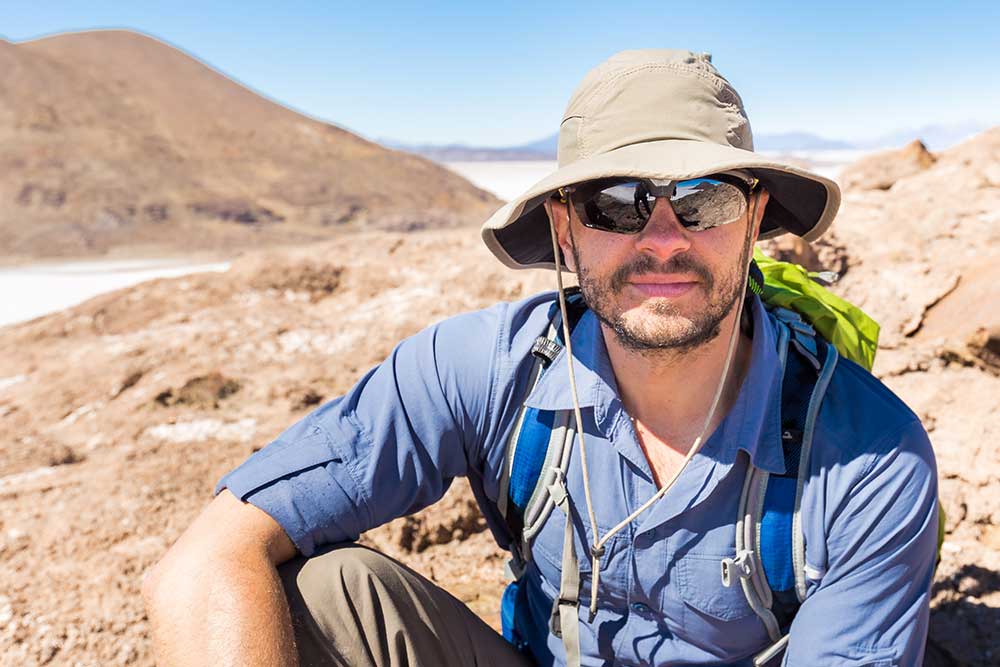All Categories
Featured
Table of Contents
Geophysicist Salary And Job Description 2023 in Mirrabooka WA 2021

(PREM)., and the limits in between layers of the mantle are constant with stage transitions.

This makes plate tectonics possible. Schematic of Earth's magnetosphere. The solar wind Flows from left to. If a planet's magnetic field is strong enough, its interaction with the solar wind forms a magnetosphere. Early space probes mapped out the gross measurements of the Earth's electromagnetic field, which extends about 10 Earth radii towards the Sun.
Inside the magnetosphere, there are fairly thick regions of solar wind particles called the Van Allen radiation belts. Geophysical measurements are generally at a particular time and place.
Geophysical Survey in Pearsall Aus 2022
, combines huge collaborates and the regional gravity vector to get geodetic collaborates. This method just provides the position in 2 coordinates and is more hard to utilize than GPS.
Relative positions of 2 or more points can be determined using very-long-baseline interferometry. Gravity measurements became part of geodesy because they were required to associated measurements at the surface area of the Earth to the referral coordinate system. Gravity measurements on land can be used gravimeters deployed either on the surface or in helicopter flyovers.
Sea level can also be determined by satellites utilizing radar altimetry, contributing to a more precise geoid. In 2002, NASA launched the Gravity Recovery and Climate Experiment (GRACE), wherein two twin satellites map variations in Earth's gravity field by making measurements of the distance in between the two satellites utilizing GPS and a microwave varying system. , which are studied through geophysics and space physics.
Geophysical Surveys - U.s. Geological Survey in Floreat Oz 2020

Given that geophysics is concerned with the shape of the Earth, and by extension the mapping of functions around and in the planet, geophysical measurements consist of high accuracy GPS measurements. As soon as the geophysical measurements have been processed and inverted, the translated outcomes are outlined using GIS.
Numerous geophysics business have actually designed in-house geophysics programs that pre-date Arc, GIS and Geo, Soft in order to meet the visualization requirements of a geophysical dataset. Expedition geophysics is used geophysics that typically uses remote noticing platforms such as; satellites, airplane, ships, boats, rovers, drones, borehole sensing equipment, and seismic receivers.
For example, aeromagnetic data (aircraft gathered magnetic data) collected using traditional fixed-wing airplane platforms should be fixed for electro-magnetic eddy currents that are developed as the airplane moves through Earth's magnetic field. There are likewise corrections related to modifications in measured possible field strength as the Earth rotates, as the Earth orbits the Sun, and as the moon orbits the Earth.
Standard And Guidance For Archaeological Geophysical ... in Huntingdale Western Australia 2023
Signal processing involves the correction of time-series data for unwanted noise or errors presented by the measurement platform, such as airplane vibrations in gravity information. It also involves the decrease of sources of noise, such as diurnal corrections in magnetic data. In seismic data, electromagnetic information, and gravity information, processing continues after error corrections to consist of computational geophysics which lead to the final interpretation of the geophysical information into a geological analysis of the geophysical measurements Geophysics emerged as a different discipline just in the 19th century, from the crossway of physical geography, geology, astronomy, meteorology, and physics.
The magnetic compass existed in China back as far as the fourth century BC. It was not until great steel needles could be forged that compasses were used for navigation at sea; before that, they might not maintain their magnetism long enough to be beneficial.
By taking a look at which of 8 toads had the ball, one could determine the direction of the earthquake. It was 1571 years before the very first design for a seismoscope was published in Europe, by Jean de la Hautefeuille. It was never ever built. Among the publications that marked the start of modern-day science was William Gilbert's (1600 ), a report of a series of meticulous experiments in magnetism.
Frequently Asked Questions in Ballajura Western Australia 2020
Dietmar; Sdrolias, Maria; Gaina, Carmen; Roest, Walter R. (April 2008). "Age, spreading out rates, and spreading out asymmetry of the world's ocean crust". Geochemistry, Geophysics, Geosystems. 9 (4 ): Q04006. Bibcode:2008 GGG ... 9. 4006M. doi:10. 1029/2007GC001743. S2CID 15960331. "Earth's Inconstant Magnetic Field". science@nasa. National Aeronautics and Area Administration. 29 December 2003. Obtained 13 November 2018.
Leipzig. Berlin (Gebruder Borntraeger). Runcorn, S.K, (editor-in-chief), 1967, International dictionary of geophysics:. Pergamon, Oxford, 2 volumes, 1,728 pp., 730 fig Geophysics, 1970, Encyclopaedia Britannica, Vol. 10, p. 202-202 Ross 1995, pp. 236242 Shearer, Peter M. (2009 ). Intro to seismology (2nd ed.). Cambridge: Cambridge University Press. ISBN 9780521708425. Stphane, Sainson (2017 ).
Latest Posts
Geophysical Survey - Salisbury Archaeology in South Guildford Aus 2021
Geophysical Survey in Yangebup Aus 2022
Working As A Geophysicist And Oceanographer In Canada in Singleton Aus 2022